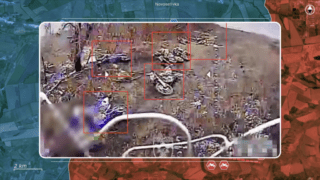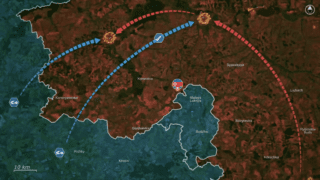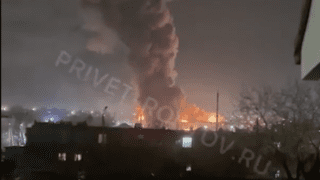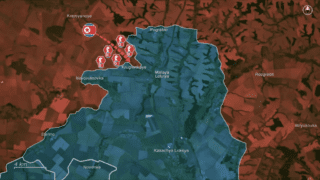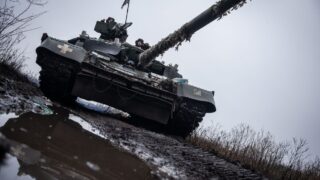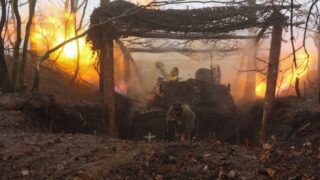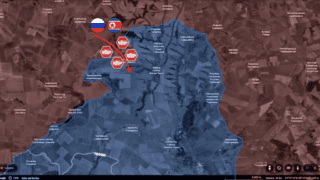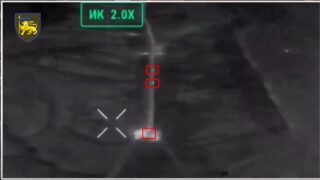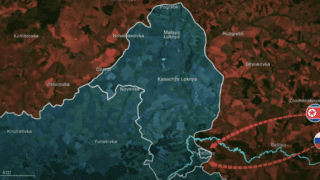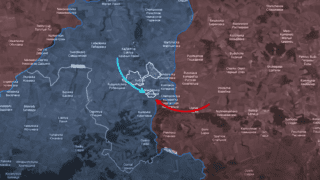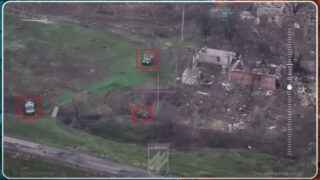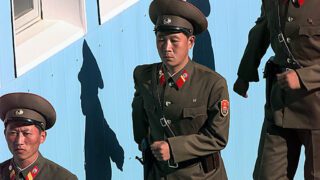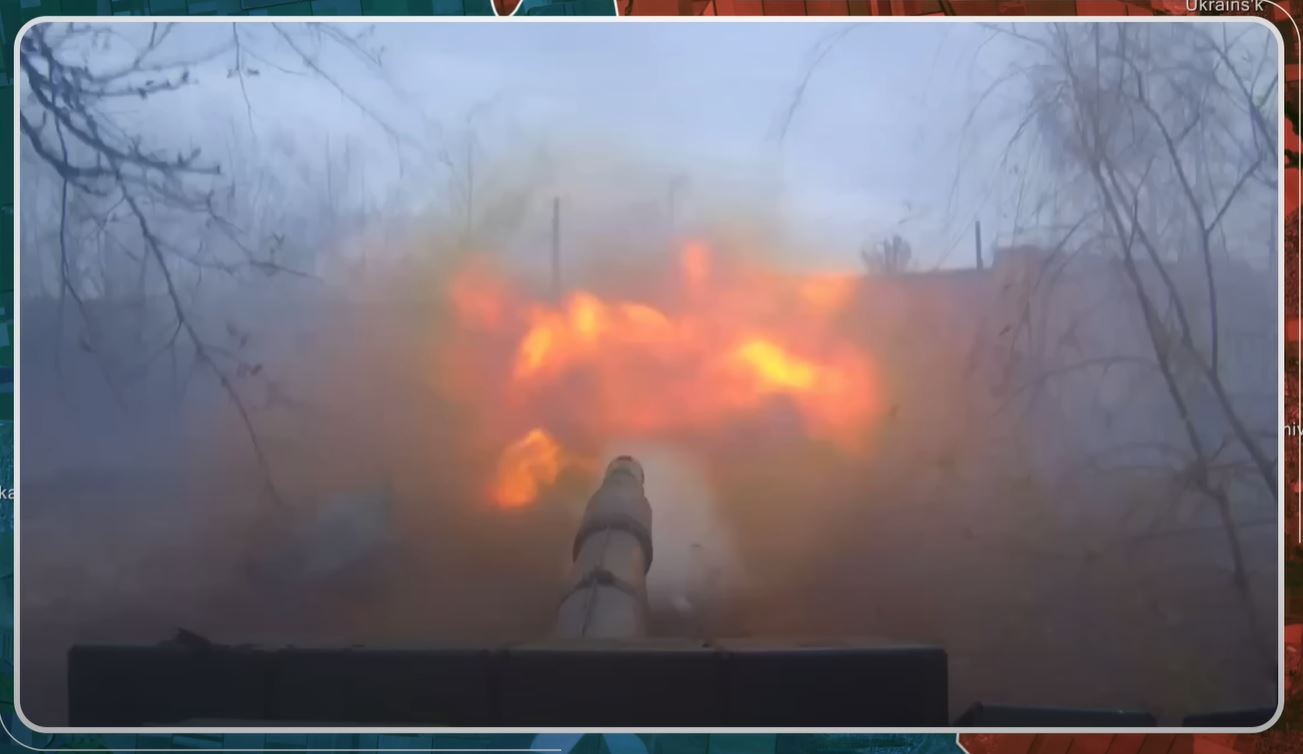
Frontline report: Ukrainian tank raids destroy Russian troops in bottleneck at Kurakhove’s Sontsivka
03 December 2024. Today there are a lot of updates from the Kurakhove direction, Donetsk Oblast.
Russian attack on Kurakhove’s northern flank
Here, in an attempt to outflank the main Ukrainian stronghold, Russians launched a series of attacks on the northern flank, hoping to capitalize on their high ground positions. However, their advance was funneled between two rivers, allowing Ukrainian forces to launch precise and devastating tank raids, catching Russians in the bottleneck and eliminating the assaulting troops.
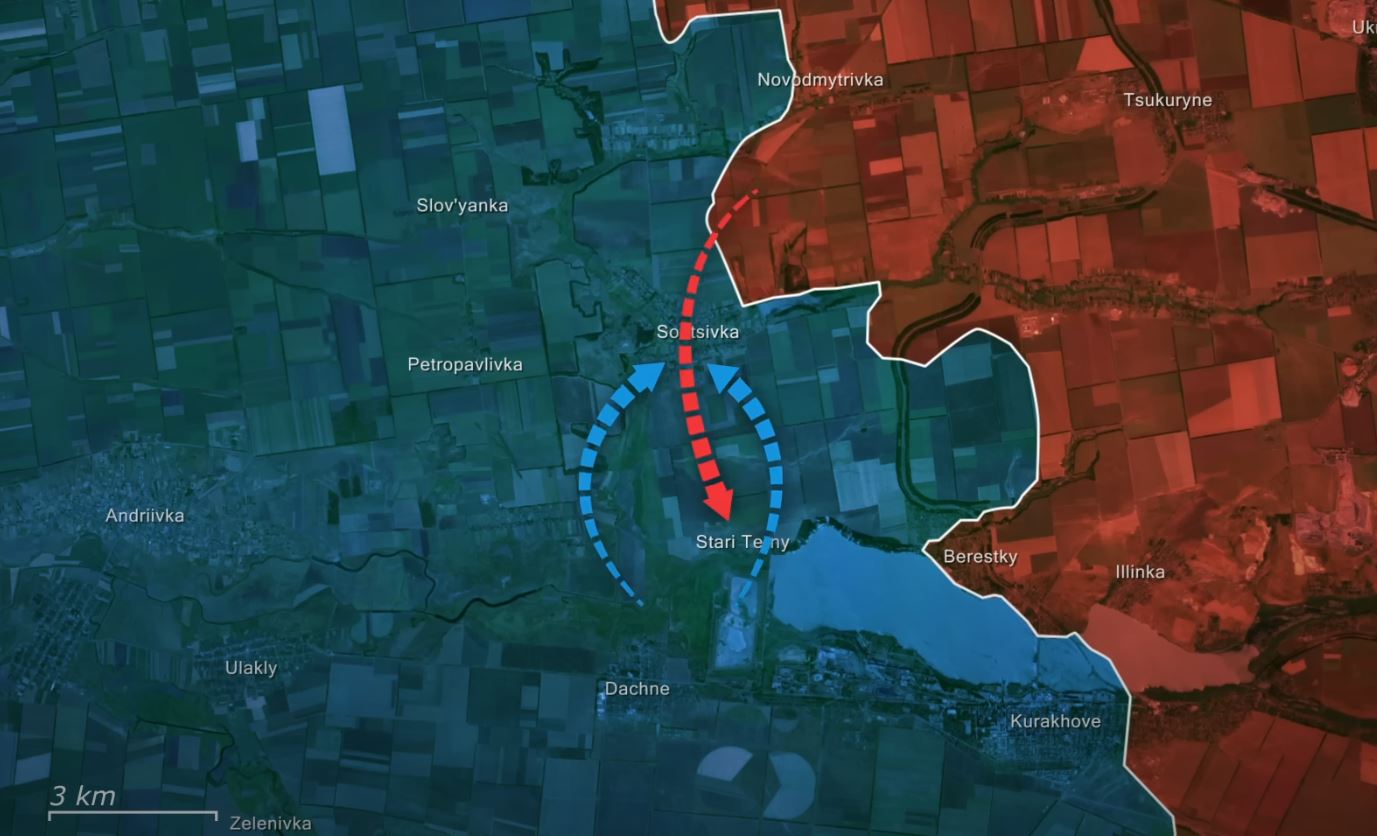
Russian strategic shift to Berestky and Sontsivka
While the Russian offensive toward the town itself and its southern flank appears unpromising, their advance on the northern flank has allowed them to capture Berestky and initiate fighting for Sontsivka. Securing these settlements would enable Russia to form two axes of advance toward Stari Terny.
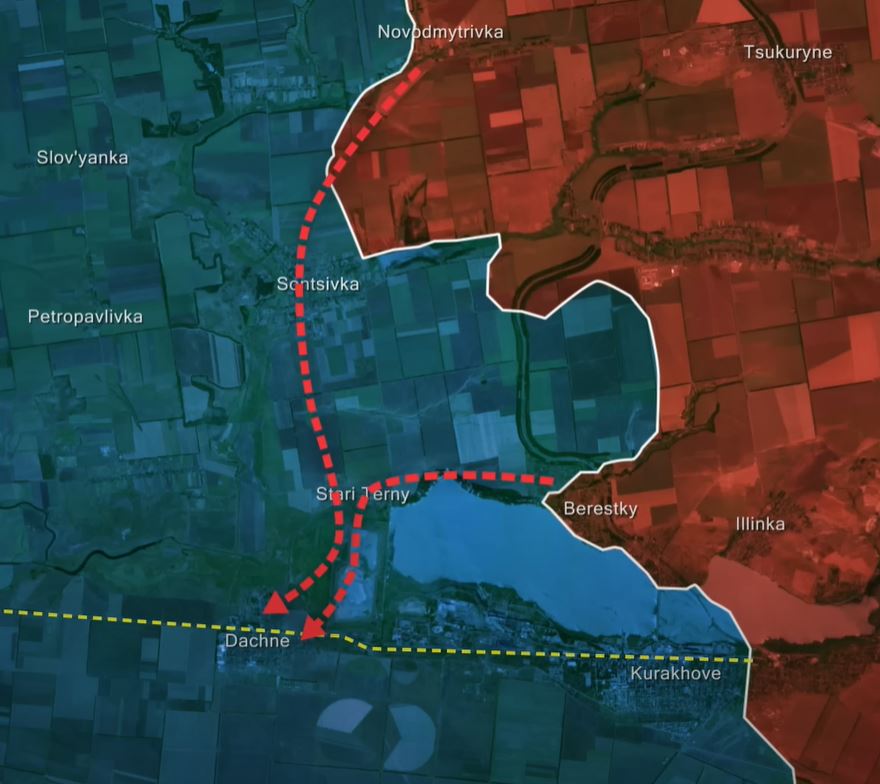
By capturing Stari Terny, Russia would be positioned to threaten and control the rear logistics of Kurakhove, particularly the highway passing through Dachne. The threat to this sole Ukrainian supply route would force Ukrainian forces at Kurakhove to withdraw to avoid encirclement. This strategy is designed to expedite the capture of Kurakhove by bypassing urban combat and advancing across open fields.
Practical challenges for Russian forces
However, the axis of advance toward Berestky was highly impractical for Russian forces. Ukrainian troops positioned in the high-rise buildings of the Kurakhove Thermal Power Plant have observation points that allow them to monitor and target any Russian advance along the Berestky-Stari Terny road, with clear lines of sight across the Kurakhove reservoir. As a result, Russian forces shifted their focus to Sontsivka, as an advance on Stari Terny appeared more feasible from that direction.
Tactical advantages of Russian positions near Sontsivka
In the Sontsivka area, the Russians hold significant tactical advantages that facilitate their advance on the village. First, they have a direct route to the village via a highway, enabling rapid deployment of mechanized assault groups and quick troop dismounting within minutes. Additionally, a topographic analysis reveals that Russian positions to the north of the village are situated at a higher elevation, granting them fire control over Ukrainian forces positioned in the lowlands.
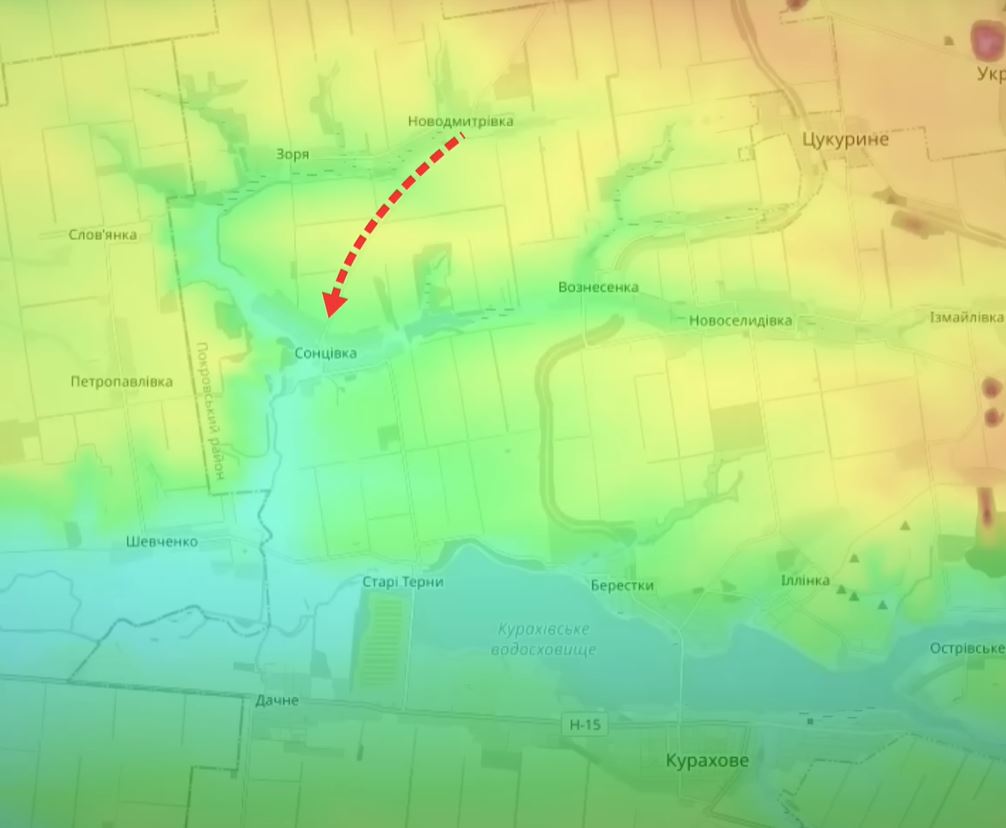
Natural obstacles hindering Russian advance
Despite these advantages, the Russians face natural obstacles in the form of the Strashny and Solona rivers. These two rivers converge in the village, hindering the Russian advance toward the southern part and creating a funnel that restricts tactical maneuverability.
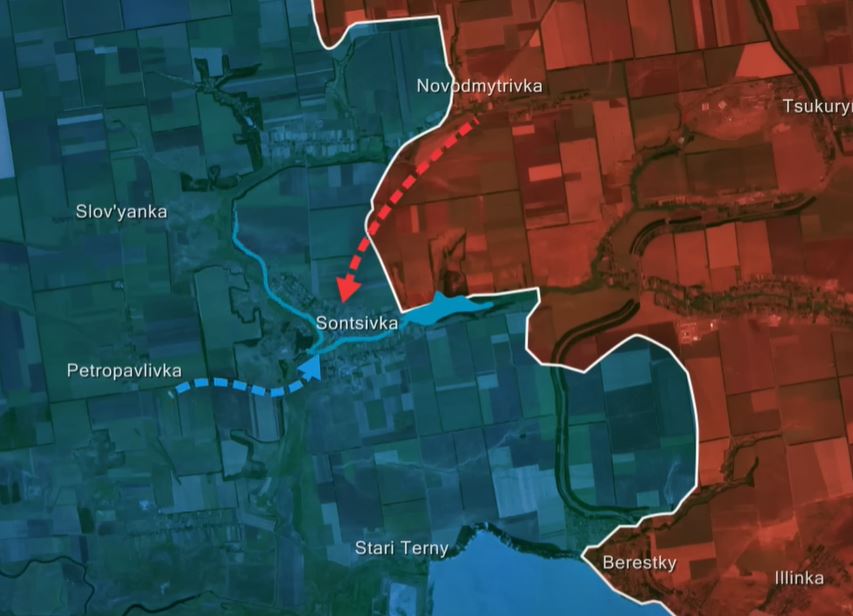
This limits the Russians’ ability to outflank the Ukrainian positions, making their attacks predictable and easier to monitor and counter. Additionally, Ukrainian forces in the southern part of the village are positioned to effectively target Russian troops attempting to cross the rivers, further complicating any Russian advances in this area.
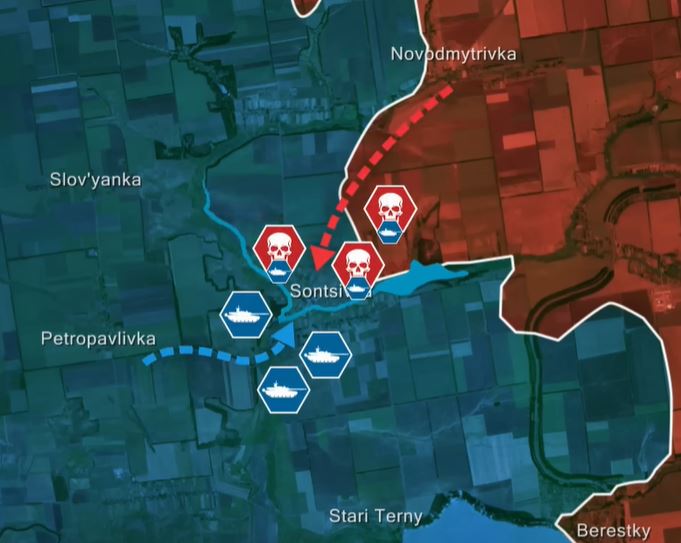
Ukrainian tank raids disrupt Russian positions
The Russian forces proceeded with their attack, and some units managed to enter the northern part of Sontsivka. However, this move placed them in a kill zone that had been carefully prepared by Ukrainian forces.
Once the Russians were effectively bottlenecked in northern Sontsivka, Ukrainian forces deployed T-64BV tanks to the north of the village to raid Russian positions. Combat footage from the area shows Ukrainian tanks targeting Russian troop concentrations in nearby buildings. The tank fire successfully eliminated these concentrations, and the tanks managed to withdraw under the cover of smoke screens created by their own fire.
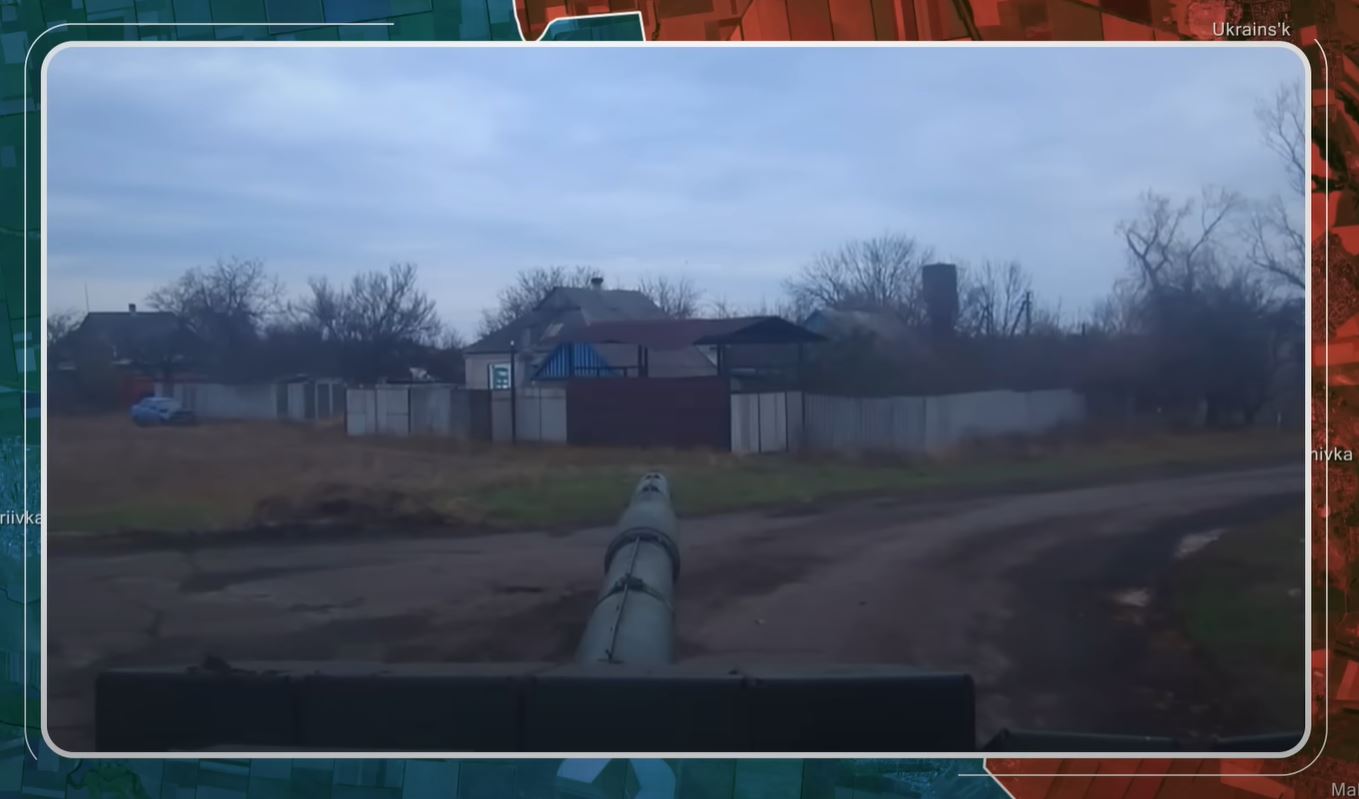
These constant, unpredictable tank raids prevent the Russians from amassing a sufficient force to launch further attacks from northern Sontsivka, as their units are continually disrupted and eliminated, hindering their ability to organize for subsequent offensives.
Russian forces face predictable and attritional assaults
Overall, the terrain configuration and lack of the decisive tactical advantage at most of the northern flank of Kurakhove forced Russians on a predictable route of attack toward Sontsivka, which the Ukrainians managed to counter by effectively leveraging natural obstacles in the form of the rivers to their advantage. Such circumstances give Russians no other options but to continue highly attritional frontal assaults on Kurakhove without any chance of a quick victory with an encirclement.
In our daily frontline report, we pair up with the military blogger Reporting from Ukraine to keep you informed about what is happening on the battlefield in the Russo-Ukrainian war.
Related:



